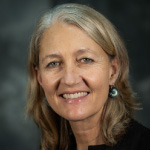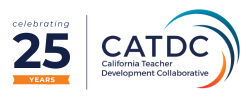Coaching: the Eyes, Ears and Wise Guidance We Need

Education is more than the information we accumulate in our heads. It’s the habits we develop as we keep revising our drafts and the skills we build to keep learning.
–Adam Grant, Think Again
I began teaching in an independent school with no idea how to best support my students’ learning, despite having a Masters of Arts in Teaching and years of experience working with young people and adults. Through a long, lonely process of trial and error, I eventually figured some things out. I had been a teacher for over 10 years before the concept of coaching beyond the volleyball court or soccer field took hold in my awareness. Reading Atul Gawande’s piece, The Coach in the Operating Room, clued me in to what I had been missing: “the outside eyes and ears” to make clear what I could be doing differently or better, and wise guidance in implementing changes.
About the time Elena Aguilar’s pivotal book The Art of Coaching was published, I became Dean of Faculty Development at the Athenian School. Determined to offer coaching to teachers and yet without any system in place, I followed in the footsteps of an independent school to the north, Sonoma Academy, hiring master teacher and coach Bonnie Mennell to spend two weeks with us a year, as I write about here.
Bonnie recently shared this about her approach: “I ask teachers I work with how I can be of service to them as a curious, inquiring, confidential observer. Each teacher has unique gifts and personal edges for growth. This is what we explore together. I also seek to offer, once I witness teachers in their classrooms, approaches, strategies, and techniques that may enhance their practice.”
Bonnie also coached me as a teacher and a leader: observing my classes and the faculty meetings I led. Like her other clients, I experienced exponential growth. I have brought much of the wisdom and new skills I gained forward into my role as Executive Director of the California Teacher Development Collaborative, especially into the transformational coaching series which I led with Lori Cohen, who is now an educational consultant and Developer of People and Programs at Bright Morning.
As Lori recalls, “participants hailed from an array of roles—teacher, administrator, teacher leader, coach—and in each of our sessions, we practiced listening techniques, learned about coaching lenses, practiced different inquiry stances, engaged in role-play scenarios, read professional articles related to coaching, and developed visions and structures for coaching at our individual school sites. By the end of the program, participants commented that they had the tools and capacities to better structure coaching conversations, and they were inspired to bring their learning back to their schools. And we continued to deepen our own learning about what it meant to not only be a coach, but a coach of coaches.”
In this EdWeek Article, Lori makes a brilliant case for why we need instructional coaching at independent schools, highlighting how it can help teachers and leaders to thrive: closing gaps in teacher preparation, providing compass points in navigating school culture, promoting equity, and supporting life-long learning.
The best educators continually rethink and revise their practices. These days, it is nigh impossible to do this well in isolation. The support of a good coach is becoming essential, whether developing responsive virtual or in-person pedagogy, reimagining DEIJ work, or leading a school through the most recent crisis.
Especially at this critical juncture, independent schools need to be much more systematic in offering professional development to educators in all roles and at all stages of their careers. To ensure the greatest growth for our teachers and our leaders and thus the best outcomes for students, our schools should build systems to support coaching: providing adequate time, appropriate structures, a clear vision, and opportunities for coaches themselves to be coached.
In continuing to support this evolution, CATDC is offering a virtual ongoing program to support coaches and school leaders who wish to leverage learning from the past year as well as develop a tool box of practical strategies for engaging in coaching conversations. Facilitated by Jennifer Liu and Julie Strong, this program will help to build a coaching community across school sites, establishing a shared language of coaching concepts and frameworks. If you are interested in growing as a coach or are in the midst of building a coaching practice at your school, this is not to be missed.
I was fortunate to be able to bring Bonnie Mennell to Athenian as an external coach; she understood well the independent school milieu and so was that much more effective in supporting me and so many others to revise and improve our teaching and our leadership. This kind of learning should not be left to chance. That is why I am so thrilled to be officially launching CATDC Coaching. As with our workshops, we are partnering with local experts familiar with the landscape you are navigating. Please reach out if you have any questions. We are always happy to listen to your learning goals and make recommendations for cohorts to join or coaches to work with.

Lisa Haney has served as the Executive Director of the California Teacher Development Collaborative since 2017. Prior to her current position, she worked for 25-years at the Athenian School in many roles, including English teacher, international program director, and humanities department chair. In her most recent capacity as dean of faculty development, Lisa spearheaded a process to develop Athenian’s Standards of Excellent Teaching and design a comprehensive new professional development and evaluation program.
